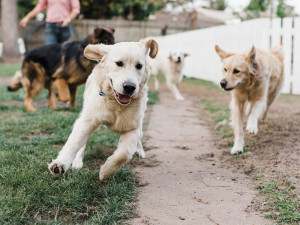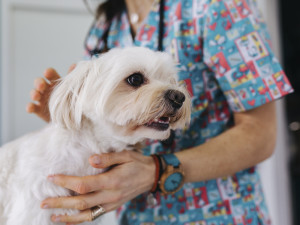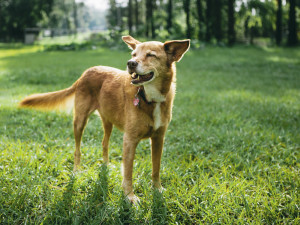Canine Respiratory Illnesses Are Spreading Across the U.S.
What we know and what dog parents should look out for.
A particularly severe strain of kennel cough is making its way around the country, affecting dogs in several states, including Arkansas, Minnesota, and Pennsylvania. Dog parents in these areas are encouraged to vaccinate their dog against bacteria and viruses that can cause kennel cough, such as Bordetella and canine influenza, and watch their pets for any signs of the disease. Note that common pathogens that can cause infectious respiratory disease in dogs also include canine distemper, parainfluenza, and adenovirus type 2, which are all part of the core vaccine series as well.
As of May 2023, the Minnesota Board of Animal Healthopens in new tab has suspected more than 200 cases of the respiratory illness this year, with outbreaks across the state, especially in the Minneapolis metropolitan area. Multiple cases have also been confirmed in central Arkansasopens in new tab, specifically Conway, Benton, and Little Rock, as well as across the state of Pennsylvania. Local officials are encouraging dog parents to vaccinate their dogs and isolate their pets from other canines if they notice any symptoms.
Snap a pic of your pup’s teeth, and GREENIES™ will help you spot potential signs of oral health issues.
What to Look For
“The most common signs of kennel cough include a hacking cough that may include retching and/or gagging,” Dr. Amy Fox tells Kinship. “Some dogs will also have sneezing, eye discharge, and/or a runny nose.”
Dr. Fox notes that dogs contract this infectious disease by being around other canines, particularly in places like boarding facilities, dog parks, doggie daycares, and animal shelters. If your dog was recently in one of these environments and seems to have symptoms of kennel cough, get them to the vet ASAP.
How much do you spend on your pet per year?
“It’s important to have your dog checked out by your vet, as they can help to confirm if your dog has kennel cough, as well as to monitor for the more serious signs, including fever, pneumonia, and dehydration,” Dr. Fox says. She adds that you should also isolate your pet from other animals in the home because, while the disease cannot be spread to humans, it can easily spread to other dogs — and even cats.
What You Can Do to Prevent This
Some experts believe that this particular respiratory illness is a strain of canine influenza, but regardless of the actual name of the disease, the best option is to ensure your dog has all of their vaccines up-to-date, especially their core vaccines and Bordetella, which may not prevent respiratory illness entirely but can help reduce the symptoms and duration of the disease.
“Bordetella vaccines do not induce full immunity to kennel cough, so this means that dogs that are vaccinated against Bordetella can still get infected, and they just tend to have milder cases of illness,” Dr. Fox says. She also notes that “kennel cough” is a general term for a variety of infectious respiratory diseases that cause similar symptoms.
Fortunately, mild cases of kennel cough require no medical care, and the majority of dogs recover fully within two to three weeks without any treatment. Dr. Fox suggests making sure that your pup is eating and drinking consistently and even offering some of their favorite foods to encourage a decent appetite. Otherwise, you just have to let the illness take its course.
“For dogs who are more seriously ill from kennel cough, they may require more medical interventions including antibiotics and supportive care to treat dehydration and/or provide oxygen support,” Dr. Fox says.











